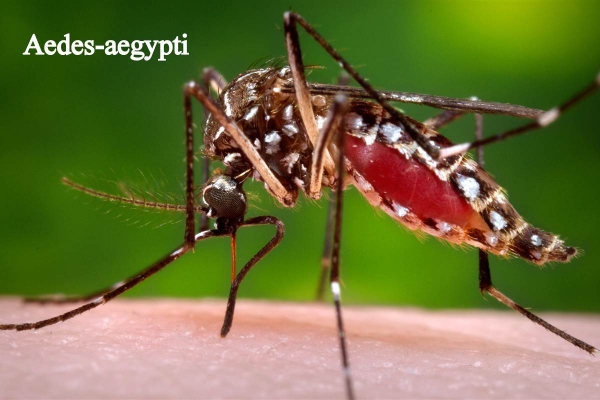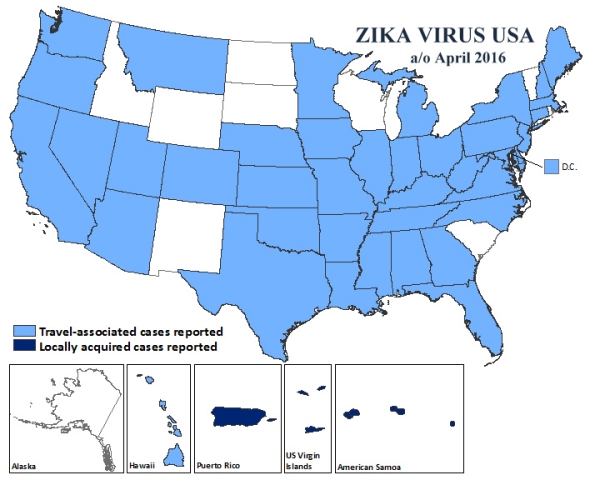FAQ - Do you worry about tropical diseases?
/In light of the current Zika pandemic scare, we've been asked frequently about whether we worry about catching exotic diseases that are more prevalent in tropical areas and third world countries and the answer is yes and no. Yes, it's a concern, but we take all reasonable precautions. And, no, we don't worry so much that it prevents us from sailing in the tropics or to third world countries. When we were at Pitcairn Island in 2007, the bird flu was the big scare. The Pitcairners held an island meeting (all 46 of them) and decided to “close the island” until it was prudent to allow visitors again. We were already there and had previously been at sea for more than 14 days when we arrived, so they figured we were safe enough. They did, however, have the island health officer give us a once-over.
We were in South Africa and Namibia when the Ebola virus hysteria was at its peak. We were more concerned that we wouldn't be able to fly out of Africa to the USA for the holidays than we were about actually catching the disease. As it turned out, we had our temperatures taken while waiting in the ticket line at the airport terminal. If there was no temperature, we were allowed to board. We had no problems.
And, now, of course, it's the Zika virus that's the concern. The big difference with the Zika virus is that it's transmitted not by birds or other mammals, but by mosquitoes, much like yellow fever, malaria, dengue or the West Nile viruses. One major difference, however, is that the carrier culprit (female Aedes aegypti) is a daytime-active mosquito. In case you didn't know, the Zika virus was first identified back in 1947 in the Zika Forest of Uganda, hence its name.

I found a map which shows the current probability of Zika distribution and occurrence worldwide, and obviously the more tropical areas are the most likely.

As of this month, there have been 16 confirmed cases of the Zika virus in Trinidad. The Minister of Health, Terrence Deyalsingh, has cautioned the population not to panic. Regarding concerns that Zika could be a life threatening public health issue, he said “what you do not want from Zika is panic. Please keep it in perspective. Please let us keep our heads on to eliminate this”. He said that the virus needs to be attacked on the ground level, with a public education and clean up campaign. He said “if you have 100 people in a room, eighty per cent will not show symptoms”. Deyalsingh said: “I am appeal to everyone. Do not create unnecessary panic. The comment of Zika take you, you going to die, is absolutely not true”.
I wasn't sure I'd trust the Trinidadian Minister of Health's comments, but the CDC had the same type of information. “People usually don’t get sick enough to go to the hospital, and they very rarely die of Zika. For this reason, many people might not realize they have been infected.” Obviously though, the concern of pregnant women for birth defects in unborn children and the possible tie of Zika with Guillain-Barré Syndrome is very real.
So what precautions do we take in general? We have had yellow fever shots in the past and had a booster before we left South Africa for the Guianas. The most prudent precaution, other than not visiting the areas at all, is to cover up and use insect repellent religiously, which we try to do. In the past, we were especially careful about the dawn and dusk hours when mosquitoes are most active, but with the Zika, it's an issue all day long. Fortunately, mosquitoes are less of a problem along the coast and we've not been bothered by them. We did get bites while touring the Caroni Swamp despite the insect repellent we applied. So far, no problems. Considering there are only 16 identified cases in Trinidad, we think the chances of contracting Zika are pretty remote.
That said, we're thinking of stopping in Puerto Rico on our way north which already has 475 reported cases of Zika, most acquired locally, i.e. bitten by an infected mosquito versus travel-related or sexually transmitted. We'll take extra precautions when we stop there, e.g. mosquito netting, care with insect repellent, covering up during the day, etc. Being aware and prepared is part of the battle.




 If the #1 most frequently asked question relates to storms we've encountered, the #2 question is “Do you carry guns aboard?” And the response is “No”. Our answer is usually met with raised eyebrows and a bit of disbelief. “Well, you're Americans. We thought for sure you'd have guns!”
If the #1 most frequently asked question relates to storms we've encountered, the #2 question is “Do you carry guns aboard?” And the response is “No”. Our answer is usually met with raised eyebrows and a bit of disbelief. “Well, you're Americans. We thought for sure you'd have guns!”